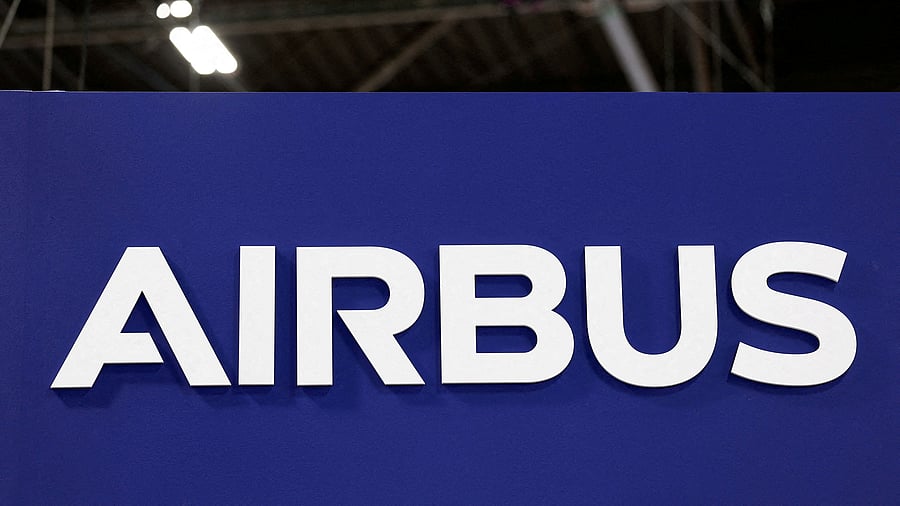
The Airbus logo.
Credit: Reuters photo
New Delhi: IndiGo, Air India and Air India Express flight operations will see disruptions as they work on fixing a potential issue related to flight controls in their A320 family planes and 200-250 aircraft will be impacted in the country, according to sources.
Airbus on Friday said intense solar radiation might corrupt data critical to flight controls in a significant number of A320 family aircraft and that the software changes required to fix the issue would lead to operational disruptions.
With many of the narrow-body A320 family planes of the domestic carriers set to undergo software changes or in some cases hardware realignment, there will be operational disruptions as the aircraft have to be grounded, the sources said.
Indian operators have about 560 A320 family aircraft and 200-250 of them will need software changes or hardware realignment, they added.
The European Union Aviation Safety Agency (EASA) said Airbus asked airline operators to install a serviceable Elevator Aileron Computer (ELAC) in the impacted aircraft.
Generally, ELAC is for flight controls.
EASA has directed that the issue should be addressed before the next flight to be operated by the impacted aircraft by replacing or modifying the affected ELAC.
On Saturday, the country's largest airline IndiGo said it is aware of a notification issued by Airbus, the manufacturer of the majority of our fleet, pertaining to the A320 family planes.
"We are working closely with Airbus to ensure implementation as per Airbus notification. While we carry out the necessary inspections, we are making every effort to minimise disruptions," it said in a statement.
In a statement Air India Express said, "We have initiated immediate precautionary action in response to an alert requiring a software fix on the Airbus A320 fleet. While a majority of our aircraft are not impacted, the guidance applies to operators worldwide and may result in adjustments to flight operations, including potential delays or cancellations."
A source said that 31 A320 family planes of Air India Express will be impacted.
In a post on X, Air India said it is aware of an Airbus directive related to its A320 family aircraft currently in-service across airline operators.
"This will result in a software/hardware realignment on a part of our fleet, leading to longer turnaround time and delays to our scheduled operations.
"Air India regrets any inconvenience this may cause to passengers till the reset is carried out across the fleet," the airline said.
The three airlines did not disclose the number of aircraft that have been impacted.
A320 family aircraft includes A319s, A320 ceos and neos, A321 ceos and neos.
In an Emergency Airworthiness Directive, EASA said Airbus has asked airline operators to install a serviceable ELAC in the impacted aircraft.
Airbus said an analysis of a recent event involving an A320 family aircraft has revealed that intense solar radiation may corrupt data critical to the functioning of flight controls.
"Airbus has consequently identified a significant number of A320 family aircraft currently in-service which may be impacted," it said in a release.
Airbus said it acknowledges these recommendations will lead to operational disruptions to passengers and customers. "We apologise for the inconvenience caused and will work closely with operators, while keeping safety as our number one and overriding priority."
The aircraft maker said it has worked proactively with the aviation authorities to request immediate precautionary action from operators via an Alert Operators Transmission (AOT) in order to implement the available software and/or hardware protection, and ensure the fleet is safe to fly.
According to the EASA, an Airbus A320 aeroplane recently experienced an uncommanded and limited pitch down event.
"The autopilot remained engaged throughout the event, with a brief and limited loss of altitude, and the rest of the flight was uneventful.
"Preliminary technical assessment done by Airbus identified a malfunction of the affected ELAC as possible contributing factor," it said.
This condition, if not corrected, could lead in the worst-case scenario to an uncommanded elevator movement that may result in exceeding the aircraft's structural capability, the EASA said.
It added that to address the potential unsafe condition, a serviceable ELAC has to be installed in the impacted planes.